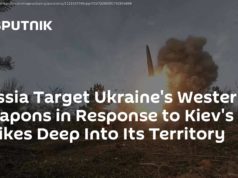US Defense Secretary Jim Mattis said Thursday the use of chemical weapons in Syria is « simply inexcusable, » after a suspected poison gas attack in Douma.
US Defense Secretary Jim Mattis said Thursday the use of chemical weapons in Syria is « simply inexcusable, » after a suspected poison gas attack in Douma.
The United States and allies France and Britain are currently finalizing plans for an expected strike against the regime of Syria President Bashar al-Assad after the alleged chemical attack that left more than 40 people dead.
« Some things are simply inexcusable, beyond the pale and in the worst interest of not just the chemical weapons convention but of civilization itself, » Mattis told the House Armed Services Committee.
Lawmakers quizzed Mattis on what he made of President Donald Trump’s muddled messaging over Syria. Trump last week said he wanted to pull out of the war-torn nation, but this week taunted Assad ally Russia with boasts of an impending missile strike that « will » be coming.
The recognition of Syria’s complexities « means you are at times… going to see contrary impulses, » Mattis said.
World powers have threatened a strong response to Saturday’s attack, with French President Emmanuel Macron saying Thursday he had « proof » Syria’s government was behind it.
Syria and Russia have both denied the accusations, and the global chemical watchdog said it would deploy a team to investigate.
Mattis insisted that Trump has not yet made a decision to strike Syria, after the president earlier had tweeted that action « could be very soon or not so soon at all! »
The Pentagon chief and other top security officials were due to head to the National Security Council after the hearing, where he said he would « take forward the various options to the president. »
Several lawmakers grilled the Pentagon chief on the legal authorities the military has for action in Syria beyond the remit of its current mission, which is to work to destroy the Islamic State group.
The Pentagon is currently working under war powers granted in the aftermath of the September 11,2001 attacks, even though operations across the Middle East have morphed broadly since those early days of hunting for Al-Qaeda.
Mattis said a strike on the Assad regime in Syria would be authorized under presidential powers, and would not require Congressional permission.






